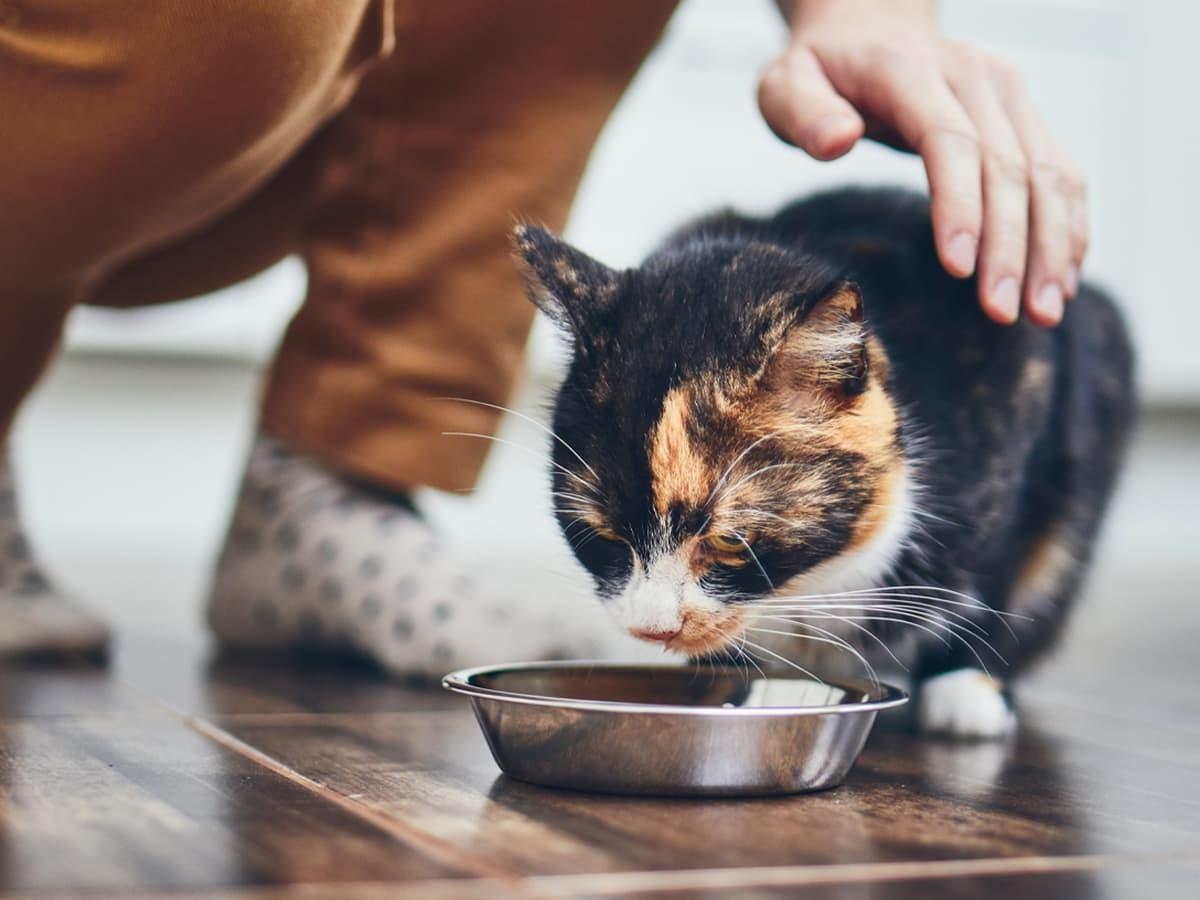Can cats eat marshmallows?
While marshmallows are not toxic to cats, they are not a suitable or nutritious food for them. Marshmallows are high in sugar and do not offer any nutritional value to cats.1 Feeding cats sugary or high-calorie treats can contribute to obesity and other health issues. Additionally, some cats may have difficulty digesting sugary or processed foods.
It's best to provide cats with a diet that is specifically formulated to meet their nutritional needs. If you want to treat your cat, consider offering small pieces of cat-friendly treats or snacks designed for feline consumption. Always be cautious about introducing new foods to your cat's diet and consult with your veterinarian if you have concerns or questions about your cat's nutrition.
Let’s get started with everything you need to know about marshmallows and cats.
What are marshmallows?
Marshmallows are a sweet confectionery that is made up of sugar, gelatin, and water, which is whipped to make it soft and airy. Creating smores by roasting marshmallows on a bonfire and pairing the roasted marshmallows with chocolate and graham crackers is a common tradition.
Are marshmallows safe for cats?
When we think about our cats all we want is for them to have nutritious food and stay away from any foods that can make them sick. While marshmallows are not considered toxic to your cat, the sugar, food coloring, and other additives may pose a threat to your cat’s health and well-being if they eat too many. The sugar content can also lead to an upset stomach and teeth cavities while the sticky texture can be a choking hazard.1
What are the risks of giving a cat marshmallows?
Cats are carnivores and their digestive systems are not able to process with sugar and additives in marshmallows too well. While a small bite of marshmallow might not make your cat sick, eating too many can lead to certain health risks, which could include -
Obesity - The sugar content in marshmallows can lead to weight gain and obesity.
Toxicity - Marshmallows contain xylitol, a sugar substitute that is extremely harmful to pets.1 Sometimes, marshmallows are covered in chocolate, another ingredient that is toxic to pets.
Digestive Issues - Cats lack the enzymes that help digest sugar and carbohydrates which means that cats that eat too many marshmallows may experience digestive issues.
Sodium - Marshmallows also contain high levels of sodium which can be harmful for cats. Too much sodium can lead to sodium poisoning in cats.
What to do If my cat eats a marshmallow
If your cat has a small bite of a marshmallow there shouldn’t be any immediate health concern but if they eat a few, take your cat to a vet for treatment. Look out for drooling, vomiting, or diarrhea.
Alternatives for marshmallows
If you want to switch up your cat's diet and add a few new treats into the rotation, here are a few suggestions your cat may enjoy2 -
Catnip: Catnip is the magic herb that can make your cat happy instantly. Catnip offers a sensory experience for them and it makes them purr, roll, play, etc. Catnip leaves can be crushed on their food or catnip toys can be given to them.
Treats: Once in a while treats are a must for your cat. Look for treats that are made of fruits and vegetables and can add nutrition to your cat's diet.
Fish: Adding fish to your cat's diet is a great way to make sure they get more protein and nutrients. Cats love tuna, salmon, and a few other kinds of seafood. Experiment and learn which seafood your cat likes best.
Can marshmallows kill my cat?
Marshmallows are bad for cats, but not so toxic that they can cause death. Cats who eat too much marshmallow may experience symptoms including nausea, an upset stomach, drooling.2 If your cat experiences any of these symptoms, take them to the vet immediately.
How to keep cats away from marshmallows
Cats are very swift at climbing into places they shouldn’t. The best way to keep your cat away from marshmallows or any other dangerous foods is to -
Store the food in a space that cannot be reached by your cat or in a cabinet that your pet can't break in to.
Don’t allow your cat on the table when you are preparing or eating food.
Don't feed your cat food when you are eating.
Educate your friends and family to not leave food around or share food with them.
Conclusion
While marshmallows might be a delightful treat for us, they're not suitable for our feline companions. These treats offer no nutritional value to cats, and the ingredients in marshmallows can be harmful to them. It is recommended to provide alternative cat-friendly options such as canned food, treats, or fish to help maintain their overall health. If your cat happens to ingest marshmallows, promptly consult your veterinarian and seek medical assistance.

I’m Charlie: canine enthusiast with a knack for figuring out why my dog, Dallas, is more infatuated with tennis balls than me. My lifelong passion for dogs has created a dedication to help other pet parents better understands their furry family members!
"Can Cats Eat Marshmallows?" Medium, https://medium.com/@catscareblog/can-cats-eat-marshmallows-are-marshmallows-bad-for-cats-1ecfe4763460, Aug. 3, 2023.
"Can Cats Eat Marshmallows?" Forgetful Mama, https://www.forgetfulmomma.com/2023/02/15/can-cats-eat-marshmallows, Feb. 15, 2023.
The information presented in this article is for educational and informational purposes only and does not constitute or substitute for the advice of your veterinarian.












